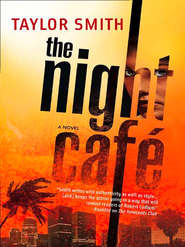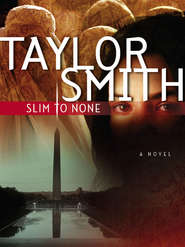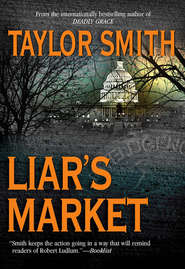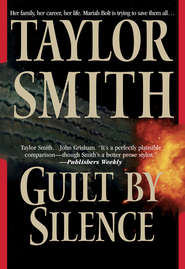По всем вопросам обращайтесь на: info@litportal.ru
(©) 2003-2024.
✖
Deadly Grace
Автор
Год написания книги
2018
Настройки чтения
Размер шрифта
Высота строк
Поля
“But that’s not fair! You should have been at the top of the list, too. You served in the war. So did my father.”
“Yes, but Daddy was an American, wasn’t he?”
“That shouldn’t have made any difference. We were allies and everybody was fighting for the same side. And what about you? You fought for England behind the lines in France just the same as if you’d been in a uniform. You should have gotten the same treatment as the soldiers coming back.”
“Well, perhaps, in theory. In practice, though, it wasn’t that simple. I’d worked for a very small, very secret part of the government. Even now, you know, Whitehall never publicly acknowledges the special services, even though everyone knows they exist. In any case, dear, we were a very few, and there were so many other needs to fill. They had to establish priorities somehow, and British servicemen and their families simply came first.”
I started to renew my protest against the unfairness of it all, but my mother held up her hand. “It wasn’t only the billeting problem. Food and clothing were in short supply, too. Rationing was still in force. You needed formula, nap-pies and, oh, so many things that just weren’t to be had. Really, darling, when your grandparents wrote and invited us to come and live with them here, I knew it was for the best. As for this…” She waved a neat, manicured hand at the TV screen, where Deborah Kerr had returned, dressed in a simple but elegant little black dress very much like one my mother owned. “…this is just Mummy being very silly, that’s all.”
In my heart of hearts, I was glad she had taken up my grandparents’ offer. They’d been wonderful, loving people, and through their stories and those of so many old friends and neighbors in Havenwood, I grew up feeling linked to a father I’d never known—a father about whom my mother, frankly, could tell me frustratingly little, so short had been their time together before he was killed.
That evening, though, I began to see my mother in a whole new light. To me then, a young girl on the brink of womanhood, there was great melodrama in the notion of this brave young English widow, a war heroine in her own right, clutching a tiny baby to her bosom as she hurried from one government office to another under a relentless English rain, pleading with harried and unsympathetic clerks for lodgings that just weren’t to be had.
“What about now?” I pressed.
“What do you mean?”
“Do you ever think of going back?”
“To England? And leave you here all alone? What an absurd idea!”
“No, I mean we could both go. It’d be neat. I could see where you grew up, and where you met Dad.”
“Oh, I don’t know about that, Jillian. It’s such a long trip, you have no idea.”
“We’d fly over.”
“That would be terribly expensive. And not at all feasible. The school systems are very different and…”
“Not for good. Just for a visit. Summer vacation, maybe. You could see old friends, take me to the white cliffs of Dover. Maybe we could go to France, too, look up those cousins.”
My mother had been born in Dover to an English father and a French mother. It was that combined heritage that had made her such a prize to the British secret service when the war broke out and finally landed her behind the lines in occupied France. But that night in front of the television, she displayed no interest whatsoever in a return visit.
“It would all be very different now, Jillian. So many places were bombed during the war, including the house I grew up in and my father’s print shop. Everything’s been rebuilt and changed, I’m sure. I don’t think I should enjoy seeing that. I’d rather remember it as it was.”
“What about people?”
“People?”
“Family, say? On your father’s side—or your mother’s?”
On her bedroom bureau she had a small, pewter-framed photo of her own mother, whose beauty she’d inherited. British sapper Albert Wickham had met young Sylvie Fournier in Normandy during the First World War and had utterly lost his heart to her. They’d married after the war, but sadly, my grandmother had died in an influenza epidemic when my mother was just a toddler. My mother, like me, had grown up an only child.
“There’s no one left to speak of on my father’s side,” she said. “He only had one sister, and she died years ago, never married. On the other side—your grandmaman’s family—well, there were the uncles in France, of course, but they’re gone now. As for les cousins,” she added, her French pronunciation flawless, her nose wrinkled in distaste, “I made very sure to lose touch with them the moment I grew up. A right obnoxious bunch, they were.”
I smiled. She’d told me once about the awful teasing she’d suffered at the hands of the horrible Norman cousins with whom she’d spent her summers as a child. They were the reason my mother spoke fluent French, however, heard first at her doomed mother’s breast, then fine-tuned during those childhood summers spent with the uncles and their families. And years later, in fact, when she was sent back into France to work with the Resistance, my mother adopted Grandmaman’s name, Sylvie Fournier, as her nom de guerre.
“What about old friends?” I pressed.
A small crease appeared on her high forehead. Her hair was probably already in the process of turning from its original honey-blond to silver-white at this period of her life, although I can’t remember clearly. But that evening, I’m sure, she would have been wearing it as she invariably did, smoothed back from her face and rolled into a neat chignon at the base of her skull. When she rose in the morning, it flowed like a soft, golden storm halfway down her back, but she would never have thought of leaving it down during the day.
Her tiny pearl stud earrings matched the single strand at her neck, and she was wearing a peach twin set, I remember, the cardigan draped around her shoulders, cape style. As she pondered my question, she crossed her wrists over her chest and tugged the cardigan closer, as if she’d felt a sudden chill. As the air between us shifted with her movement, I remember, a subtle hint of her perfume, Ma Griffe, wafted from her chair to my corner of the living room sofa.
“It’s been a long time, dear,” she said finally. “The war changed everything and there’s no going back. It’s better to leave some things locked away in memories.”
In my mother’s voice that night, I imagined I heard the whispering ghosts of all the people she’d lost to the war. Her beloved father, of course, killed in 1941 by the German bomb that destroyed his printing press in Dover. I also knew, because I’d only recently dragged it out of her, that she’d once been engaged to another man, long before she met my father—long before the U.S. had even entered the war. He’d been a British naval lieutenant, but he had died early on in the war.
There had to have been countless other friends and comrades, too, from her youth and from those nearly five long years of war, most of which she’d spent working as a British special agent, first in England, then in France. English spies. French Resistants. And, of course, Joe Meade, the dashing American flyer with whom she’d fallen in love, married and conceived a child, and then lost just weeks before I was born.
I can only imagine that the spirits of all those departed souls haunted my mother—that night and to the end of her days.
CHAPTER 10
Havenwood, Minnesota
Thursday, January 11, 1979
Cruz knew a brush-off when he heard one. He and Berglund were at the Havenwood police headquarters, standing outside the low-slung stucco building. Cruz was hungry and tired, and his feet and hands were freezing. The sun had set while they were inside the hospital at Montrose and now, a bitterly cold night wind was whistling through the empty baseball diamond across the road. Under his shoe, Cruz felt the crackle of thin ice on the asphalt lot, which was empty, except for one other police cruiser besides Berglund’s.
“Why don’t you leave it with me?” Berglund told him. “Once Jillian’s back on her feet, I’ll ask her about that visit she made to England—who she talked to over there, whether she noticed anything out of the ordinary. Whatever. You can leave me a list of questions, if you want, and I’ll get back to you on it. God only knows when that’ll be, mind you, the way she looks now. Meantime, seems to me there’s not much point in you wasting your time hanging around here.”
Cruz studied the ground as he kicked tiny fragments of ice and sent them skidding across the parking spaces. They had driven back from Montrose along a rural secondary road—a shortcut, Berglund said, although to Cruz, the black void they’d traversed had seemed grim, forbidding and endless. For the entire length of the trip, they’d seen exactly one other vehicle, a pickup traveling in the opposite direction. No one else. No roadside service stations, no call boxes, no lonely farmhouses. After the first few minutes of passing nothing but pale, twin slivers of potholed road flying by on either side, dimly lit by headlights that obviously needed cleaning, Cruz had had the anxious sense he was losing his eyesight.
Berglund had uttered hardly a word since leaving the psychiatric ward. Now, the two men stood face-to-face in the parking lot, illuminated by a single sodium floodlight mounted high on a weathered pole that threw long shadows and cast a jaundiced light on the deputy’s broad face. His breath plumed around his head in the cold night air like smoke from a locomotive getting ready to shove off. Clearly, Cruz thought, there would be no invitation to come inside. Berglund was done playing host.
“I’ll give it some thought,” Cruz told him. “I might end up leaving those questions with you at that, but we’ll see how things go. Meantime, don’t let me hold you up. I’m sure you’ve got plenty to do without having to baby-sit me.”
Berglund cocked a thumb at the low stucco building. “Got a ton of paperwork to do before I can get out of here.”
Cruz nodded. “You go ahead. Thanks for taking me around.”
“No problem. Are you going to catch a flight back tonight?”
“I doubt it. The last flight to D.C. is around seven-thirty, and there’s no way I’d make it, especially with a rental car to return.”
“Maybe an early-morning connection. Return your car tonight, stay at one of the Minneapolis airport hotels.”
“I could do that, but actually, I was thinking I might stick around here for another day. See how Miss Meade’s doing tomorrow.”
Berglund paused. Lost in shadow under the prominent ridge of his brow, his eyes were totally unreadable. “Suit yourself,” he said finally.
“Can you recommend a hotel?”
“Only two places open this time of year,” Berglund said. “Lakeside Inn and the Whispering Pines.”
“Which is better?”
“Lakeside’s got bigger rooms and a better view, not that it makes much difference at night. It’ll be noisy, though. There’s a steak pit and pub downstairs. Real good rib-eye, if that appeals. The Whispering Pines Motel is attached to that Chevron station half a mile back down the highway, the way you came into town. Rooms are pretty basic, but they’re clean and it’s quieter out there, especially at this time of year. Plus, if you want a decent breakfast for a good price, the café there’s the place. All the truckers make a point of stopping there on their way through these parts.”











